Hey guys, it's Scott.
And it is Friday, December 1st. My God, we're in December, I can't believe it. I'm so sorry, I feel like I missed a big chunk of November with this, or at least a couple weeks. But I will explain, and I'm really excited to get back into it. We have tons of stuff coming up. Just for housekeeping, Black Jacket members—please, please send your books ASAP using the info that Ty is posting here:
Ship books to:
Comic Sketch Art
c/o Best Jackett
5438 Lockwood Ridge Rd. #173
Bradenton FL 34203Please put the following information on the back of each backer board:
Your name
Your address
Your cell phone number
Your email address (associated with PayPal) for return shipping charge
Make note if you would like the book CGC’d. CGC fees will be charged at the same rate as listed on the CGC site (currently it is $45 for modern comic books).
Add a number "out of" to the back (ex. 1 of 4) so we can make sure to account for all books before I submit or return.
Please enclose a prepped bag and board with your raw or graded book. To do this, draw a box on the bag where you would like the creator to sign on the book. Cut out the square and place your book back in the bag/board or include the bag and board with the slabbed CGC book if the book needs to be cracked.
We will send you an invoice, via PayPal, after we receive your items. Please let us know if you have any further questions.
I would Express Ship them at this point. I am going down to Florida to sign all of your books in two weeks, on the 16th. So if they're not there, I'm not going to get a chance to do it. So please just shoot them down there. I'm really excited to get this done. I'm flying in for the day and then flying back on the same day. So I might even just like, have to sign them at the airport. So it's a really quick turnaround. So please just guarantee that you have your books there and provide shipping back to your place. That's all you have to do. You don't have to pay for me to sign. I think you can work out CGC. If you want to pay for CGC, you can do that. The guy who's bringing them is CGC-certified. Whatever you want to do, but just make sure the books are there and you're all set with everything by the 16th.
Also, the week after next, we're going to go back to doing classes! We're going to look at a couple stories, but I thought we'd a theme of “nightmare before Christmas,” which will be a horror-themed class. It'll be about writing horror, it'll be about my favorite horror comics, and we'll look at some student work and published stuff. It'll be a lot of fun. I've been thinking about this one for a while, so I think we'll have a blast.
So yes, on a personal note, first, we went down to Maryland and visited my sister for Thanksgiving, which was amazing. She lives there with her husband, who's a pilot for Southwest Airlines, and she is going to have her second kid in a couple months, my second niece. And so we've never gotten a chance to really go down and see their house as a family. I've gone down a couple times. But this was a big thrill to bring the boys and to see them play with their cousins and all of that and to eat lots of turkey and drink too much and I feel like I've put on at least like, 10 pounds in just the last couple weeks.
So first was that, and then when we got back, Jeannie, my wife, had a conference in Chicago for radiology. And it's actually pretty funny if you've ever been to C2E2, it's a big robust comic con in Chicago, and this is at the same convention center. And so I remember going to C2E2 and being like “wow, they treat us like kings! Look at this!” And then you go to a doctor convention and it’s like “actually no, doctors are treated like kings.” Their convention are amazing. They’re catered, they get all kinds of swag and whatever. Once I went to a convention in Vegas and thought I was showing Jeanie a good time, and then she took me to one at the Bellagio that was like, again, a doctor conference when it was like, they gave you free chips to gamble, all kinds of stuff. And yes, so back to the nerd basement of life.
But it's been me and the three boys for the last week. And so everything that could go wrong went wrong. The 16 year-old, his phone died and I had to go get him a new one. The 12 year-old basically forgot everything he needed at school almost every day. And the four year-old was actually just happy to be here and fine. But it was a crazy, crazy week, so I apologize that I haven't been more on the ball with this. And if you’re anybody that emailed me about anything over the last like, three weeks, I apologize for being so late. I was gonna post on Twitter but I didn’t want to be weird about it. But yes, we’re back in the groove and I thought what I’d do today really briefly, because we’re gonna do a series of posts about the state of the union of comics again. I think I’ll talk about the current view on nostalgia and the dangers of those things next time. I think there’s been a lot of talk online about how comics or stores used to be better, and usually people are talking about superhero comics when they mention that. But also I think there's some things that that sort of framework doesn't really take into account and also isn't particularly helpful with regard to now. And there's elements of it that I also think are just off. So without it being about how wonderful comics is now, doing more of a clinical and holistic look at the things that are different in comics now, good and bad, from 10 to 30 years ago, so that we can kind of meet the industry where it is. If you're a creator and you're coming up, or if you're a fan, if you're anything, if you're just interested in it. So that's kind of the idea on my end. I think it'll be a lot of fun.
So I got a lot of questions about “what is this fucking writer's room? What is a writer's room? What does it mean?” Because that has been like, the totality of my work life almost, except for working on White Boat for DSTLRY, which I'm very excited about, and Dungeon, I just finished Dungeon for IDW for Dark Spaces, and have had some luck with sending that out for option. But above all, my day-to-day has been this writer's room, right? So what is it?
Okay, so a writer's room is a group of writers that are put together by the people who have optioned or greenlit a book or a property so that you can produce scripts over a set period of time. And I know that sounds like very sort of Oxford Dictionary, but so I'll walk you through how it happened with Wytches. So with Wytches, what happens is Wytches was optioned by Amazon and Plan B to be animated. It's the same group of people that are making Invincible right now, which is super exciting because the show has been a tremendous hit for them. So they're really energized about trying to push elevated genre stuff in animation, and Wytches will be the big horror swing that they’re doing as opposed the superheroes, which is Invincible. But they optioned the book, which means (like I told you before) they rent the rights from me and from Jock and essentially, during that period, what they're trying to do over those 18 months is put together a script, attach a director, attach some talent, attach producers. Basically, it can be any combination of those things, but get it close enough to a package that they feel they can buy it. And by buying it, that means they exercise the option. So if you're renting it, you're optioning a property. During that period, you always have the chance to buy it. You can buy it, and that gives it to you for basically perpetuity, but seven to 10 years. And it's a sizable amount of money in comparison to whatever your option was. So if your option was $5,000 or $7,000, then the purchase is usually somewhere between, in that case, $50,000-$60,000 to $100,000. If it's a $50,000 option, or something like that, or a $30,000 option, then usually the purchase price is roughly about 7-10 times the option price, so $300,000.
So anyway, it's a big commitment on their part. So what they try and do is get everything as close to perfect as possible so they know that if they buy it, it has the least chance of failing. So with Wytches, they optioned it, and they put together a mini-room. And the mini-room was, they asked me to consult, and then I wound up showrunning it. But me and three other writers, and we were tasked with producing three to four scripts to show them what the show would be. And at the end of that time, they could essentially cancel the option or give the option back to me and Jock to go out with another company, or they could re-up the option, they could rent it for another period of time and continue to go, or they could buy it and say, “we're putting this on TV.” And so the writers room itself was me and a few other writers at that time that I really loved. And we were in there for I think 14 weeks, 12 to 14 weeks, so about three and a half months. And during that time what we have to do is we meet every single day in business hours. So every single day from about 9:00 to 3 or 4:00. We go all the way till five, but because it's Zoom, it is a little bit hard. And we also have work in the morning from the room itself that we bring home with us. So we generally meet until about three o'clock L.A. time and start at 9 a.m. L.A. time. So for me, that means every day I'm in a Zoom room from 12 until about 6 p.m. nonstop with one break in the middle for about an hour. And during that hour, I pick up my kids from school. So my days have been like wall-to-wall Wytches, even back then.
And so the writer's room back then went from about September of 2022 or so until December, something like that. Somewhere around there, it was like maybe late summer, it started, I don't remember the exact dates, but for about those between three and four months, so 14 weeks, we were breaking the story. So we spend about two weeks breaking the whole season down and saying what beats of the season fall in which episodes. So we break it, even though we're only writing about four episodes, we break the entire thing. It’s an eight episode season and we're guaranteed two seasons after it did get purchased. So anyway, the point is, we were breaking it for, at that point, for four episodes of season one. And so we spend two weeks and we use a program called Miro. You can look it up. It's like a whiteboard, but it has index cards, virtual index cards on it.
And so we make a season board and it says like 101, 102, 103, 104, 105, 106, 107, 108. And those are the episodes, season one and then episode one. So 101. And we do sort of a vertical column of scenes that need to happen in each episode. So the title 101 is next to 102, next to 103, and then dropping down from 101 are the beats that need to happen in a very broad way in that season board. So it'll say, for example—Teaser, 1933. (If you've read the book, you know this scene.) Young James, age eight, is playing with metal baseball figurines when his mother clamors up the inside of a tree behind him, desperately trying to escape Wytches. She begs him to help her. You think he's going to help her, and instead he bashes her head in and tells her, “pledged is pledged.” That's all it says on that card. So it just gives you the very bare minimum of what's supposed to happen in that episode in its most skeletal form, each of these cards. And after you spend about two weeks having a shape of that that could always change, you start breaking the episodes themselves. And then in a separate part of the whiteboard, you card out Act 1, Act 2, and Act 3 of each episode.
So for Episode 1, we'll have three or four scenes in each act. So the scene that I told you, James, it'll have a card that's much more full. It'll give kind of the choreography. So it'll say—The Deep Woods, Massachusetts, 1933. A young boy plays with his figures. “Babe Ruth steps up to the plate!” Suddenly a scream. He looks around, nothing. The woods, silent. Another scream… etc. It’s more of an outline. It gives a bit more. So it puts more meat on the bone. The reason that we do that is because we don’t know, initially, who’s writing that episode. I know I’m writing the pilot and the season finale should we get one, but everybody else, they kind of decide along the way which episode they feel most comfortable with. Sometimes it's about schedule, sometimes it's about what material feels best to them. But ultimately, we don't know, so we have to break it as close as possible so that people aren't writing things that don't gel with the things that were written before or written after. We want the voice to be very similar episode to episode. We want the characters' voices. We want the tonality of the show to be very similar. And writers are from all different backgrounds, right? We have one that's a playwright, in fact. He's also obviously worked on television, but his name's Harrison Rivers, and I'm going to his play tonight with Tyler in New Haven, which you should all go see called The Salvagers. It's playing for two weeks at the Yale Repertory Theater. So I'm taking the ferry over tonight at 8 o'clock if anyone wants to go and say hello to go see it and meet him for the first time in person.
But anyway, the point is, as a playwright, he has a very different style than somebody like Jeff Howard, who is a professional horror writer for TV and worked with Mike Flanagan for a lot of years on television shows. So we break it as close as we can in detail so that everybody really feels like whoever got that episode, there'd be a consistency between the things. And so we wrote the four episodes and Amazon considered and then decided they were going to greenlight it. So they purchased it. And then once they purchase it, you know you're gonna be on TV unless something really cataclysmic happens. And that was at Christmas, right? Before Christmas of last year, about a year ago.
And so then, what they do is they put together a new room. Harrison is still in the room from the mini-room. A couple other writers are on different projects. What we do is now we have a 20-week schedule to write the entire season, not just the first four, but to do everything. And so it's a pretty intense schedule. I mean, it means that you get about a week plus breaking each episode. So the first two weeks were season-wide, first two to three weeks, and we changed a few things about the season based on Amazon's notes. And also, they told us we had to have every episode uniform length, so we had to make some changes to the pilot. But ultimately, we spent about two to three weeks breaking the whole season, and then about a week and a half on each episode. And along the way, we have to do these steps. So like, we have to hand in outlines of each episode before we can write them. They're approved by Amazon and Plan B. We have to do a season pitch out, which we just did a week ago, where we present our shape of the season to the Amazon executives and everybody, and that went so well. I was on cloud nine. It's been great.
They're a terrific team of people, the people we work with at Amazon and Plan B. I sincerely love them and think animation is this incredible space to be in. I don't have a lot of interest in live action, but animation in particular, I could definitely see myself continuing to work here in a big way because it's so collaborative and it's like watching comics come to life. I'm not leaving comics, I never will, but as another space that's really like a creative incubator for me, I'm incredibly happy over here. So right now we're sort of in the middle, we're almost to the middle. So we've broken the entire season and we've broken through Episode 5, essentially, to the high degree on the cards. We still have to do 6, 7 and 8, but we have the shapes of them on the season board. And we've handed in the pilot and we handed in Episode 2 today in full script. Basically, we've handed in the outlines for 1, 2, and 3. Episode 4 outline goes in in about a week. And we've handed in the actual scripts for the approved outline of Episode 1. I did that. It was well received. 2 goes in today. 3 goes in in about a week and a half or so. And so on.
So we're really on our way. And I love the show. It's sort of extreme horror—real Clive Barker, John Carpenter, Paul Verhoeven too, like really body horror mixed with really high emotion, like really, I think, and I hope some resonant, substantive character work. So it's got these extremes like Invincible where it's hyper violent, hyper scary because it's horror over here, but also hyper emotional and it has things that we really care about. So it'll be a really big swing for animation because there isn't anything like it on TV. It's less genre than some of the other horror stuff that's there that I love, like I love Castlevania and Castlevania: Nocturne. But it's less genre. It's present-day horror, so it's just something we haven't seen on television and visually it's going to mimic Jock's art a lot, so it's really unique. Anyway, that's kind of the process of the writers room and where we are in it, so wish us luck. We hand in Episode 2 as a script today, in fact. And we have through Episode 3 approved in outline and our season approved, so we're just having a blast! Anyway, again, thank you guys for being patient with me. We'll dive back into stuff next week. I hope you had a great Thanksgiving. And send your books if you're a Black Jackett founder! Regular Best Jackett paying members, you'll get to send your books at the very beginning of the year. I'll go down again in February to sign yours. So alright, take care, you guys!
S




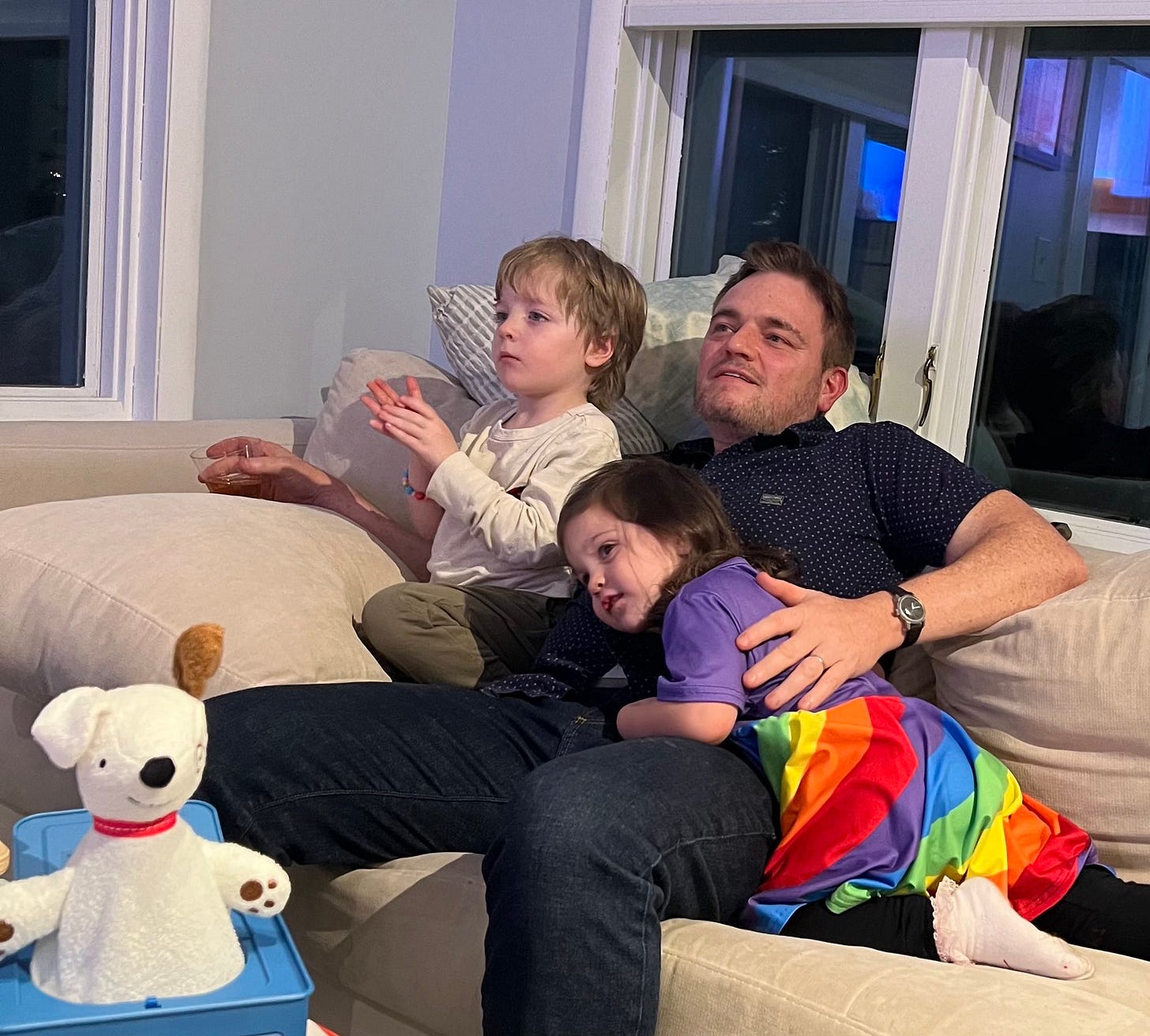

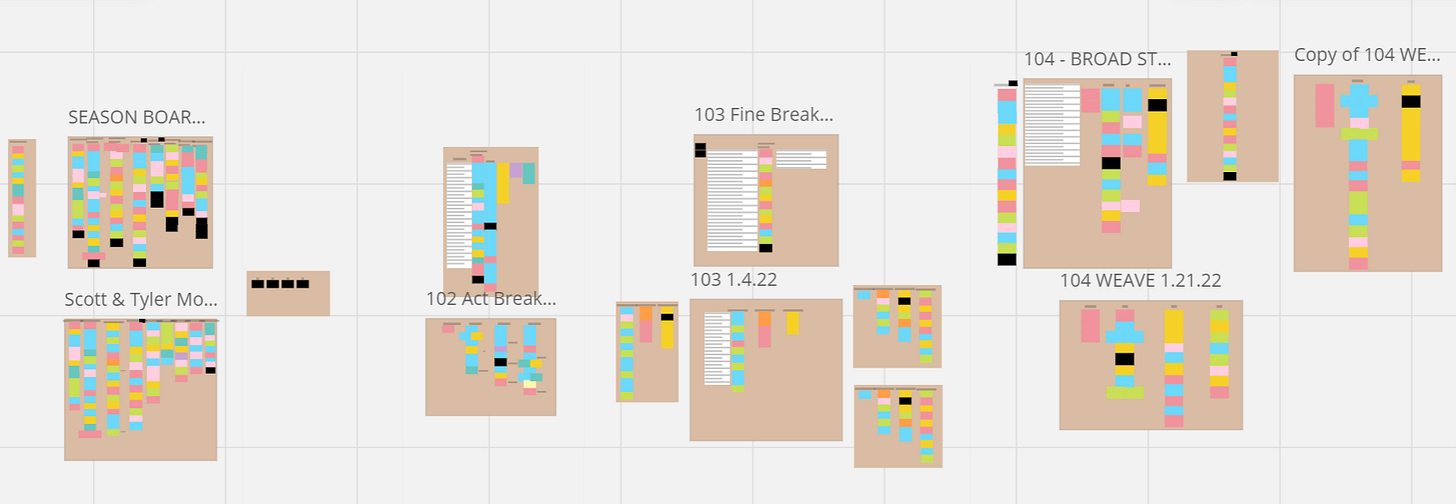

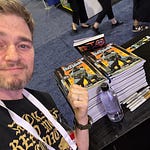
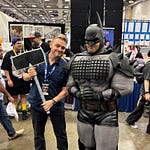



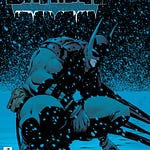
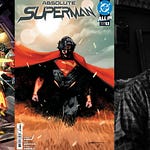
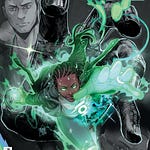
Share this post